Modal title
What is the reason for your report.
Notification to the menber regarding your report will only occur if you classify it as a case of intellectual property infringement.

NEW CONSALTANT REGISTRATION
New account registration.
Forgot Password?

Log in to see more
By continuing, you agree to Visa Lobby's Terms of Service and acknowledge you've read our Privacy Policy
Modal Popup
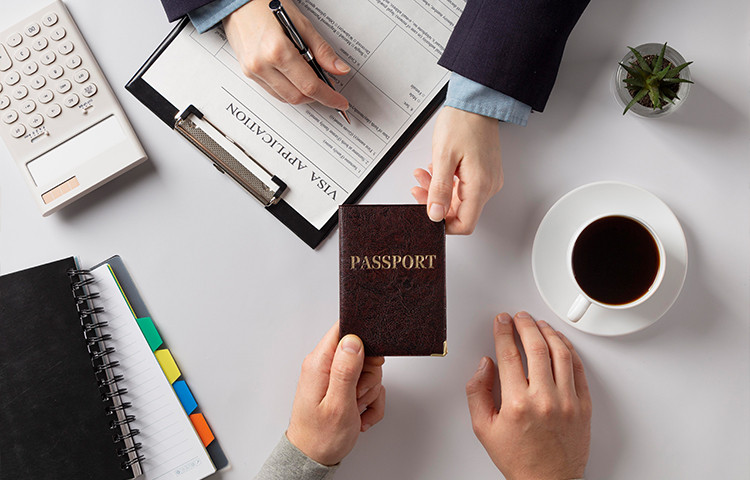
Most Asked Questions During a Schengen Visa & Immigration Interview
Schengen visa is the most popular visa for Europe that allows the visa holders to enter, travel and leave all the Schengen countries by a single visa. The final step in the process of Schengen Visa and immigration is an interview with a consular officer.
They may ask numerous questions. Thus, it is essential to go well prepared beforehand by knowing what they might ask. In this article, we are listing the most commonly asked questions in the Schengen Visa interview.
Personal, Family and Study-Related Questions
The process of visa and immigration is not so complicated still includes several steps to complete the process. As the last step, there are various questions that can be asked by the visa applicant at the embassy, including some personal questions too. For example, you can be inquired about your personal life, family, education and reasons to apply. As an applicant, you need to answer all the questions honestly to avoid visa refusal. Some of these questions include;
- Where in the country do you live?
Which degree have you earned? Do you intend to attend school in one of the Schengen nations?
Do you have a spouse? Are you taking your spouse or partner on this trip? Why or why not?
Have you got any children?
Do your parents or in-laws reside with you?
Do you have any ties to terrorist organisations or other anti-social elements? Are there any members of your family?
Why do you think the Schengen visa should be issued to you?
What will you do if we deny your request for a visa?
What kind of work do your kids do for a living?
Do you have a baby? Do you intend to give birth in a Schengen country?
Did the university in the Schengen nation contact you, or did you contact them?
Do you own real estate here or in a Schengen nation?
Who will look after your home while you are away?
Why have you remained in this country for such a long time?

Work-related questions
As Schengen is an area comprising 26 countries with no borders, it's a huge territory with countless work and business options. In case you are applying for a business or work visa for Schengen, the questions asked by a consular officer will be more job oriented. Applicant must satisfy the queries of the consular with all honesty. Questions can include;
- Your parent, sibling, or friend works in the Schengen region. Are you meeting them to discuss a job?
Do you have any plans to work or intern temporarily in the Schengen region?
Did the firm in the Schengen nation contact you, or did you contact them? How many applications have you submitted, and where have you been accepted?
Who will look after your home or company while you are away?
Do you own a business, or do you work for an organisation?
Do you have a letter of approval for leave from your employer?
READ MORE Schengen Visa Requirements for Unemployed Applicants Where Can I Travel With a UK Student Visa?
Financial Questions
Financial information is an important part of the interview conducted at the consular office while applying for the Schengen visa and immigration. Financial questions are asked to inquire whether the funds or bank balance an applicant has, are enough to financially support the tour or not. Also, if there are some shortcomings, such as pending taxes, expired health insurance, or insufficient funds, it can cause trouble in getting a Schengen visa. Questions that can be asked include;
- When did you last file your income tax return?
What is the amount of your pension? Who is paying for your travel?
Do you have travel-coverage health insurance?
Who is paying for your trip?
How much will this trip cost you?
Can you provide a bank statement?
Do you know your son's or daughter's annual income?
How much do you earn or what is your salary?

Travel Related Questions
Schengen visa requirements along with all the other steps, also include a detailed interview at the embassy. Once you submit a visa application to get the Schengen visa, the last step in this visa or immigration process is the interview at the embassy. An applicant can be asked various questions for the satisfaction of details you have submitted via documents and also to know about several other things not mentioned in the application form. Questions may include;
- Have you ever travelled to any other Schengen nation?
What countries do you plan to be visiting on your journey?
Why do you need a visa for such a lengthy period of time? Can't you cut the visit short?
Have you previously arranged for travel and lodging in the destination country?
Do you know which nations your visa is valid for and which it is not? Do you know how long your visa will be valid?
Are you going there by yourself or with someone else?
Why are you visiting this country or these countries?
Can you ensure that you'll make it back to your native nation before your visa expires?
Have you ever travelled to another Schengen nation?
Note that this list covers the most commonly asked questions during the Schengen visa and immigration process. The consular officer may ask you any other questions which might be needed to know according to your situation.
Subscribe to VisaLobby
Get Exclusive Updates Absolutely FREE
Super Visa Invitations for Canada's Parents & Gran...
Starting on May 21, 2024, Canadian authorities will begin sending out invites for Super Visas to around 35,700 prospective sponsor parents who have su...
Google Advocates for Revised US Immigration Polici...
Google, a leader in cybersecurity and artificial intelligence (AI), is leading the charge to reform US immigration laws. The software giant has issued...
New Zealand Relaxes Immigration Requirements to Ad...
The government of New Zealand has taken major measures to attract foreign workers to remedy the country's secondary teachers shortage. To fill these v...
IRCC Implements Changes to Start-up Visa and Self-...
Immigration, Refugees and Citizenship Canada (IRCC) in Canada is now undergoing substantial modifications aimed at streamlining its federal commercial...
Australia Relaxes Age Restriction for Graduate Vis...
Hong Kong and British National (Overseas) passport holders will particularly benefit from Australia's recent announcement of a large exception from th...
Germany Ranks 5th Globally for International Job S...
Despite falling to fifth place globally in the most recent "Decoding Global Talent 2024" survey, Germany has maintained its position as the top non-En...
Five-Year Schengen Visas Unveiled for Saudi, Omani...
The European Union has issued a momentous decision, offering Saudi Arabia, Oman, and Bahrain citizens a five-year multiple-entry visa. This declaratio...
Sunak's Pledge: UK Set to Launch Deportation Fligh...
The UK prime minister, Rishi Sunak, has made a bold pronouncement regarding the start of deportation flights to Rwanda within the next 10 to 12 weeks....
eVisa Revolution: UK to Phase Out Physical Immigra...
Millions of UK residents are about to embark on a dramatic journey as the country transitions to a purely digital immigration system, eliminating phys...
Table of Contents
- Anim pariatur cliche reprehenderit.
- enim eiusmod high life accusamus terry richardson ad squid.
- wolf moon officia aute, non cupidatat skateboard dolor brunch. Food truck quinoa nesciunt laborum eiusmod. Brunch 3 wolf moon tempor, sunt aliqua put a bird on it squid single-origin coffee nulla assumenda shoreditch et.
- Nihil anim keffiyeh helvetica, craft beer labore wes anderson cred nesciunt sapiente ea proident.
- Ad vegan excepteur butcher vice lomo. Leggings occaecat craft beer farm-to-table
- raw denim aesthetic synth nesciunt you probably haven't heard of them accusamus labore sustainable VHS.
Latest Blog

Popular Visa

United Kingdom
Standard Visitor Visa UK
- Family-Visit
- Citizenship

Student Visa UK
Up to 5 years.

Student Visa (Subclass 500) Australia

Training Visa (SC407) Australia
Up to 2 years.

Visitor Visa (SubClass 600) Australia

Partner Visa Permanent (Subclass 801) Australia
- Multi-Entry

Cuba's Visa-Free Policy for Chinese Nationals Spurs Tourism Surge and Air Route Resumptions
Saudi extends e-visa program to caribbean nations for tourism boost, hepi report highlights economic benefits of uk's graduate route visa, mexico tightens visa rules for peruvians amid surge in migration to us, concerns rise as over 7,500 canadians apply for gaza visa despite minister's initial estimate, concerns rise as 80% of immigrants in spain lack academic qualifications, welcome to visalobby.

Join us for latest Visa & Immigration trends. Read & Publish articles. Get exclusive updates & newslatter absolutely FREE
How can I access the free information about visas and immigration? -->
Does visalobby cover information about visas and immigration for all countries -->, how do i register as a user on visalobby -->, how can i contact visalobby if i have further questions or concerns -->, how can i contact visalobby's customer support for technical assistance or inquiries -->, can i comment on the blog articles without registering -->, how can i publish articles on the visalobby blog -->, are there any charges for publishing articles on the blog -->, are the visa and immigration information provided on visalobby regularly updated -->, can i share my personal visa or immigration experiences on visalobby -->, can i share blog articles or visa-related information from visalobby on social media platforms -->, are there any restrictions on the content i can publish on the blog -->, can i subscribe to receive updates on news, blog articles and visa-related information -->, how can i report inappropriate content or behaviour on visalobby -->.
What Are The Schengen Visa Interview Questions?
If you’re planning a trip to Europe, you’ll need to apply for a Schengen Visa . This visa allows you to travel freely within the Schengen Area, which includes 27 European countries.
The application process can be daunting, but one of the most important parts is the interview. This is your chance to show that you are a qualified candidate for a Schengen Visa.
To help you prepare, we’ve compiled a list of the most common Schengen Visa interview questions and how to answer them.
Here are the most common questions asked during a Schengen Visa interview:
Which Schengen country are you planning to visit?
The Schengen area includes 27 European countries, so you will need to specify which country or countries you are planning to visit. Be prepared to explain your reasons for wanting to travel to that particular country or countries.
What is the purpose of your visit?
The interviewer will want to know why you are visiting the Schengen Area . Be prepared to explain your itinerary in detail and what you plan to do while you are there.
If you are visiting for business purposes, be prepared to discuss your business plans. If you are visiting for tourism, be prepared to discuss your travel plans.
Is this your first time visiting the Schengen Area?
If this is not your first time visiting the Schengen Area, the interviewer might ask about your previous visits. They may want to know how long you stayed and what you did while you were there. Be prepared to answer questions about your itinerary and why you are returning to the Schengen Area.
If it is your first time visiting the Schengen Area, a simple yes will suffice.
How long are you planning to stay in the Schengen Area?
Let the interviewer know the exact length of time you are planning to stay in the Schengen Area. Your departure and return should be the same as what is stated in your travel itinerary.
Where will you be staying while you are in the Schengen Area?
Your accommodation is important to the interviewer because it will show them where you will be staying during your time in the Schengen Area. Be prepared to discuss your accommodation arrangements in detail.
What do you know about the country/countries you are visiting?
The interviewer wants to know if you have done your research about the country or countries you are visiting. Showing that you are familiar with the culture and customs of your destination will demonstrate that you are a responsible traveler. Answer this question with a brief overview of what you know about the country or countries you are visiting.
How much will this trip cost you?
Being prepared with an estimate of your travel expenses will show the interviewer that you are a responsible traveler. Give a detailed breakdown of your expected travel expenses, including accommodation, transportation, and meals.
Do you have covered health insurance?
All travelers to the Schengen Area must have health insurance that covers them for the duration of their stay. The interviewer will want to see proof of your health insurance before they grant you a visa. Be prepared to show your health insurance policy or confirmation of coverage.
Have you bought or booked your tickets already?
Answer with a yes or no and provide details of your travel plans, if asked. Showing that you have made concrete travel plans shows that you are serious about your trip and less likely to overstay your visa.
Do you have a girlfriend or boyfriend?
A simple yes or no answer will suffice for this question. However, the interviewer may follow up with additional questions about your relationship, such as how long you have been dating or whether you plan to marry.
Are you traveling with anyone?
If you are traveling with anyone, the interviewer will want to know who they are and what their relationship is with you. Be prepared to explain why you are traveling with them and what your travel plans are.
Are you married? How long have you been married? What does your husband/wife do?
The interviewer may also ask you about your marital status. Committing to the memory of the dates of your marriage and other important details will help you answer this question truthfully.
Do you have children? How old are they?
Usually, a follow-up question to whether or not you are married, the interviewer may ask about your children if you have any. This lets the interviewer know if you have familial ties to your home country and whether or not you are likely to return after your trip.
Do you have any siblings? Where do they live?
Like with questions about your children, the interviewer may ask about your siblings to help gauge whether or not you have ties to your home country. Just let them know how many siblings you have and where they live without hesitation
Do you have a property in your country?
Another question that lets the interviewer gauge your ties to your home country. Owning property or other assets in your home country shows that you have a reason to return and are less likely to overstay your visa. Discuss any property or assets that you own in your home country.
Why do you need a 3-month visa, can you not achieve your purpose with a shorter stay?
The interviewer may ask you to explain why you need a visa for the duration of your stay. Be prepared to discuss your travel plans in detail and how long you need to accomplish your goals.
What is your job?
Discuss your current job in detail. The interviewer wants to know if you have a stable job and whether you are likely to return to your home country after your trip. Answer the question truthfully and provide as much detail as possible.
How long have you been working for this company?
The interviewer wants to know your employment history to gauge your stability and likelihood of returning to your home country. Answer this question truthfully and provide as much detail as possible.
Answering these questions truthfully and confidently will help you demonstrate to the interviewer that you are a good candidate for a Schengen Visa. Remember, they are looking for applicants who have a clear purpose for their visit and who can show that
How much do you earn?
The interviewer will want to know your salary to gauge your financial situation and whether you can afford to travel. Answer this question honestly and provide supporting documentation if possible.
Can I see your bank statement?
Be prepared to show your bank statement to the interviewer. This will help them assess your financial situation and whether you can afford to travel. Any sign of hesitation may make them doubt your capacity to pay for your travel expenses.
How can you travel for 3 months if you have a job?
The interviewer may be concerned that you will not return to your home country if they grant you a visa. Discuss how you will arrange your affairs so that you can take an extended leave from work.
Do you have leave approval from your company?
Let the interviewer know that you have indeed obtained permission from your employer to take the leave by providing the necessary documentation.
Have you traveled to other countries before? If yes, which countries?
This question allows the interviewer to get an idea of your travel history. Having traveled to other countries shows that you are a seasoned traveler and less likely to overstay your visa. Answer this with a yes or no and provide details of other countries you have visited if asked.
How do we know that you’ll return to your home country after your trip?
Explaining your ties to your home country is important because it will show the interviewer that you have a reason to return. Be prepared to discuss your job, family, and other commitments that will tie you to your home country.
Letting the interviewer know that you understand that it’s illegal to overstay your visa will also help show that you are a law-abiding traveler.
What will you do if your visa is not granted?
Asking this question will help the interviewer assess your risk of overstaying your visa or illegally working in the Schengen Area. Letting the interviewer know that you have other things planned in case your visa is not granted will show that you are prepared for all eventualities.
Mistakes to Avoid On A Schengen Visa Interview
Interviews are often straightforward, but there are a few things you should avoid doing if you want to increase your chances of getting a Schengen Visa.
Here are some mistakes to avoid in a Schengen Visa interview:
1. Appearing nervous or unprepared
2. Not knowing the purpose of your trip
3. Lying about the reason for your travel
4. Unable to answer common questions about your destination
5. Not having all required documentation
6. Arriving late to the interview
Keeping these things in mind will help you ace your Schengen Visa interview and get one step closer to your dream vacation.
As with most things in life, being prepared is key to success. The same goes for a Schengen Visa interview. By knowing what to expect and being honest about your travel plans, you will increase your chances of getting your visa approved. Remember, the interviewer is looking for applicants who have a clear purpose for their visit and who can show that they will return to their home country after their trip.

Extended Multiple-Entry Schengen Visas Now Available for Indian Nationals
Indian nationals looking to explore, work, or study in Europe have reason to celebrate, as they can now apply for multiple-entry Schengen visas with extended validity.

Increase in Illegal Immigration to Croatia Following Schengen Admission
Since joining the Schengen Area in 2023, Croatia has seen a sharp rise in illegal immigration, challenging its border security and affecting broader EU migration policies.

Poland Joins Germany and Netherlands in ‘Military Schengen’ Agreement
Poland, Germany, and the Netherlands have entered into a ‘military Schengen’ agreement, expediting military mobility across Europe to boost EU and NATO defense readiness.
Privacy Overview

Search Courses
Book Appointment
Upcoming Events

Top 60 Most Asked Questions During a Schengen Visa Interview

24 Dec 2021
This article's common visa interview questions aren't just for Schengen visa interviews; they may be used for any form of visa interview in any country around the world.
A Schengen Visa interview isn’t only a meeting where you provide supporting documents for a visa application to a visa official of a respective country. Matter of fact, a visa interview is intended for a more in-depth communication between the applicant and the representative of a diplomatic office. The embassy or consulate of the Schengen country, on this occasion, seeks that by asking specific and detailed-oriented questions to perceive if the candidate is actually worth given a Schengen visa.
During such an interview, the candidate does not get questioned solely about the provided information in the visa application form and its supporting documents. There are other particular questions, sometimes even unusually personal, that the diplomatic official questions the candidate.
Over the answers to such questions, the diplomatic official just wants to collect more across-the-board information about the candidate’s situation, especially about its sense of answer-ability, frankness, and accuracy. The diplomatic office does not want to issue a visa to someone who does not have such qualities. This is for the fact that the office wants to absolutely make sure the visa holder will return home within the expected time, and that will not be prone to illegal activities within the Schengen Area .
- How a visa candidate can successfully handle such questions?
- How not become a failed candidate who gets a visa refusal because of its poor or incomplete answers in a Schengen or other visa interview?
- Which are these questions, whose accurate answers make the most of the candidate’s representation in a Schengen interview session?
Below, you will find which are the normal questions the Schengen Visa officials make to their visa candidates. Mind also our explanations and recommendations presented underneath each of the following questions, in order for you to easily plan an answer that helps you GIVE YOUR BEST in a visa interview.
Note: The following questions exemplify all the possible questions that a representative of the diplomatic office can make to visa candidates. Beware that not all the questions will be done to a single candidate.
The General questions you should be expecting during an interview for a Schengen Visa are the following:
Are You Married? If Yes, What Does Your Spouse Do? For How Long Have You Been Married?
Make sure to early enough commit memorizing the exact marriage date and marriage details (in case of being married). Any wrong or insecure answer on years of marriage might be seen as an attempt to give an untruthful answer. If not married, you might simply mention you are unmarried or divorced.
Are You Traveling With Someone Else?
Answer simply with a yes or no. Also, be sure to clarify the relationship you have with the person accompanying you on the trip.
Can You Reschedule A Shorter Trip? Why Do You Need Three/Month Visa?
Mention your interest to sightsee different tourist destinations within the Schengen Area, and that you cannot do that in a short period of time. However, express your complete readiness to reschedule your plans and shorten your trip if needed.
Can You Show Your Bank Statement?
Make sure to not show any hesitation when providing the document of your bank statement to the official.
Do You Enjoy Any Scholarship?
This is another question you should directly answer with a yes or no. In case you have a student scholarship, mention the name of the institution issuing the scholarship, together with the amount of financial support it covers, as well as the period of it.
Do You Have Covered Health Insurance For This Journey?
Provide evidence of the covered health insurance for the period of stay in the Schengen Area .
Do You Have A Girlfriend/Boyfriend?
Answer frankly with a yes or no.
Do You Have a Job-Leave Approval Letter From Your Employer?
Simply confirm the possession of this letter from your employer (signed and stamped) and offer it to the official. In case you do not have such a document, it is worthless trying to verbally convince the official about having your employer’s authorization to leave the job during the travel period.
Do You Have Any Children? If Yes, How Old Are They, What Do They Do?
Sometimes you can have difficulties quickly recalling children’s job title, their exact birth date, the exact name of the company, university, or school. That is why we suggest you prepare yourself and memorize such information early enough, to avoid giving a hesitant answer during the visa interview.
You might answer with I do not have any children yet – in case you are married with no children you should state you are unmarried with no children (if single), or, simply state the number of children and their gender – if having children. Anyhow, make your answer a natural one.
Do you Have any Family Member or Friends Living in the Schengen Area?
Make sure to make a list of all the family members and friends living in the Schengen Area early enough before the interview. In case you have forgotten to mention anyone during the interview, the embassy might consider it an attempt to skip the answer.
Do You Have Any Relation With Any Involved Person In Latest Terrorist Activities?
Try to not take the question as a cautioning. Answer the question truthfully and without hesitation. Tell the official that you do not have any relatives involved in these activities and express your sadness about such acts. Show the official you are completely against such awful acts and individuals who commit them.
Do You Have Any Relative Or Any Known Person Studying In This University?
If seeking a student visa, declare the names and relationships with the relatives or friends that are currently studying in the university in the Schengen Area where you have been admitted to study (if any).
Do You Know The Annual Incomes Of Your Son/Daughter?
State the annual incomes that your children earn. Consult your child on his/her amount of net annual earnings before the interview, in order to offer it correctly this particular information to the official.
Do You Pay Income Tax?
Yes is the answer the official wants to hear from you. Additionally, you might provide evidence for that. So, show you are a responsible citizen who pays its taxes.
Do You Plan To Pursue Masters Or Doctoral Studies After You Finish Bachelors?
Express your concern regarding the current Bachelor's studies, but mention that there might exist the possibility for you to consider this opportunity in the long-term future.
Does Your Son/Daughter Have Any Children?
The answer should be simple, yes or no. Additionally, you might state the number and gender of the children of him/her.
Have You Applied In Other Universities And In Which, Also Did You Get Admitted Into Other Universities?
State names of the universities where you applied for admission (if you applied in more than one), agreeably mentioning if you got the permission to study at any of them, despite the one you chose studying to.
Have You Booked Or Bought The Flight Ticket?
Give the answer simply, by offering the evidence of a booked or bought flight ticket (depending on which of the forms you chose to get it as proof of scheduled transportation).
Have You Ever Travelled To Other Places?
Answer with a yes or no. Also, you might tell countries where you have traveled outside of your living country.
How Did You Choose This University Or College?
Indicate your interest in the specific study field that the chosen university offers. Do some research about the university and talk about distinguishing potentials that the institution has, compared to other alike institutions. In case you have the scholarship to study at this university, prove it with the letter of scholarship. Generally, try to highlight the fact that you were attracted to study there because it fulfills your educational expectations.
How do you hear about this university?
You might explain honestly the way you heard about the university, such as from the internet, friend, family, local informative agencies, or other forms.
How Do We Know You Will Return Home Within The Visa Allowed Period?
Mention to the representative of the diplomatic office your important relationships and educational/professional/personal affiliations in your home country that give you reasons to return. Such can be your family, ongoing studies, a candid ongoing job position, business, property, or other.
How Long are you Going to Stay?
Give an answer that is fully in compliance with your travel itinerary – mention your time of departure and your return. Remember that your visa will be issued depending on the time you plan to stay in the Schengen Area.
How Long Have You Been Working In This Company?
Answer by stating the number of years working for the current company.
How Many Siblings Do You Have? Where Do They Live? What Do They Do? How Many Children Do They Have?
State the total number of sisters and brothers (if any). Give all the other asked above information correctly and with no hesitation. Be as natural as possible in your conversation.
How Many Employees Do You Have?
As an employee, you should offer information about the true number of employees, and if needed divide female and male employees into numbers.
How Much Is Your Salary Or How Much Do You Earn?
State your net monthly salary, in case you are an employee. If you are an employer mention the net earnings.
How Much This Journey Will Cost You?
Your calculations must be done early enough for the interview. Calculations must include all the investments you do before and after your arrival, as well as during your return to your home country. So, show you are a convincing candidate that properly has projected its financial aspect and is able to deal with them when abroad.
How You Will Spend Your Time When Your Daughter/Daughter-In-Law Go Out to Work?
Tell you will explore the neighboring area, you will take care of the garden, children, or else. Make sure the answer to be convincing and not a projected one.
How Much Pension Do You Get?
This is another question you should give it right away without not much thought, stating the monthly amount of money you receive from your accrued pension fund.
Is This Your First Time in Schengen Area?
Answer the question with a yes or no, but you can also give details about the number of visits, dates, places you’ve been. Try to be exact with the information you provide.
Is Your Daughter/Daughter-In-Law Currently Pregnant?
Simply reply with a yes or no. If you know the gender of the baby you might state it in a natural way.
Is Your Son/Daughter Married?
Yes or no is enough as an answer.
What Are Your Plans After Your Return?
In case you are applying for a student visa, tell that you will be likely to apply for a job related to your gained education abroad. In case you are seeking to pursue further studies then the answer must be truthful. Also, in case you are expecting to get professional training or jump up in a start-up company, you will state that similarly.
What Did You Say Does Your Mother Do?
Explain the profession and the job of your mother (if a working mother). In case your mother does not work, you should indicate her daily activities, including hobbies and passions.
What Do You Do in Your Living Country?
Discuss your activities in your home countries, i.e. education, family, work, hobbies, and others.
What Do You Know About the Country You Are Visiting?
Take time to do some research about the specific country you are about to travel to and the Schengen Area in general. Focus talks a little bit about the freedom of movement, law uniformity and collaboration between Schengen countries. Additionally, mention traveller areas of your interest found in the Schengen Area (i.e. Eifel Towel, German castles, Amsterdam) and why you chose the specific country for your visit.
What Do You Know About the Country You Are About to Study To?
Take the time to explore a little about the benefits the education of the country where you are about to study offers compared to other surrounding countries.
What Does Your Company Do?
Talk about the company’s main activities in short. Tell the official in short your company’s main accomplishments in the local or international market. Do not over-talk about each activity of the company just because you are the owner, leading to an over-elaborated and tiresome answer.
What Does Your Son/Daughter/Son-In-Law/Daughter-In-Law/Sponsor/Brother/Sister Do in the Schengen Area?
Make sure to get such information from your relatives enough before the interview, about her/his job, studies and living in the Schengen Area. Write down and try to memorize their university and department they’re studying to, job position and the company working for, and location details. You will not leave an impression of a serious candidate not being able to recall your children’s occupations, so it is of great importance providing a genuine information in this regard.
What Is the Legal Status (What Visa) Of Your Son/Daughter?
Indicate correctly the legal status of your children. Contact them early enough to get the correct information, in order to not give unfitting information in the interview.
What Is Your Educational Qualification?
Give an answer by stating your highest received degree from a school or university. Do not start talking about every school and educational institution you attended before, only in case the visa officer asks you to do so.
What is the Purpose of Your Visit?
Being confident when explaining the purpose of your visit is important. Give details to the officer why you want to make the visit by offering also the supporting documents evidencing the purpose of it (i.e. Sightseeing France’s tourist areas, professional training, therapy appointment, studies, or other).
What Is Your Daughter’s, Son’s Birth/Wedding Date?
Make sure to offer the correct information. Confirm these dates early enough for the interview.
What Is Your Father’s, Sponsor’s Income?
The level of earnings of the father or sponsor should demonstrate to the official their ability to cope with your travel and stay costs abroad for the planned period of stay.
What Is Your University Yearly Cost?
Take the needed time to calculate early enough yearly study and living costs during your stay in the Schengen Area for study purposes. Any misinformed information might seem suspicious to the official.
What Property Do You Have In Your Home Country?
Name assets you own, try to not forget any (i.e. House, car, other).
What Will You Do If Your Visa Will Be Rejected?
The official wants to hear you have things to do in your country. Tell him/her you have commitments you should take care of, by mentioning your important engagements and relations.
When In Schengen Area, Are You Going To Seek Employment?
If you are seeking a study or other visa which prohibit seeking employment in the Schengen Area, you must absolutely not hunt for a job. Therefore, you should be clear in explaining that your aim is not to find a job thereby emphasizing you completely understand specific visa limitations.
When Was Your Last Time Seeing Your Son/Daughter?
Try to recall earlier than the interview the last time you have met your son/daughter, stating the correct year and month.
When You Will Travel To Schengen Area?
There are many reasons the embassy or consulate representative wants to get your straightforward answer to this question, despite having such information in your booked flight ticket. Mainly the diplomatic office wants to make sure you understand the visa’s validity limitation and that you will not remain in the Schengen Area more than allowed. So, give an answer that goes along with the dates of your booked round-trip flight itinerary or flight ticket.

Where Are You Going To Stay?
Because you might be travelling across the Schengen Area, during your stay in Schengen Area, make sure to mention the place where you will be accommodated during this time, instead of giving detailed information about all the places you will visit. Make sure the answer to be in full conformity with the proof of accommodation provided amongst other application supporting documents.
Where Did You Finish Under-Graduate/Graduate Studies?
State the name and the location of the university or college where you completed your studies.
Which Company Do You Work For?
Tell the official the name of the company where you are currently working as well as its main area of activity.
Which Countries in the Schengen Area are You Planning to Visit?
Refer to all the countries which you plan to visit when in the Schengen Area. Still, you must state which will be your country in the Schengen Area where you plan to stay the most during your visit.
Who Will Pay For Your Visit?
This is another important issue. Give your best frank answer! The diplomatic office analyzes your financial statements or sponsor’s anyways, and any misleading information will prove them you are not a worthy candidate to be given a visa.
Why Do You Want to Go to the Schengen Area for Three/Six Months Where You Have a Job in Your Living Country?
Specify the exact reason leading you to give up work for six months. Such can be a sick family member, a job training abroad or else. Anyhow, the answer must be true and incontestable.
Other questions might be:
- Who Lives With You Now And What Do They Do?
- Who Will Take Care Of Your Business/House/Property When You Are Visiting The Schengen Area?
- Why Do You Think The University Is Giving You A Scholarship?
- Why Do You Think We Should Give You Visa To Study In Schengen Area?
- Why Do You Wish To Study/Work In The Schengen Area And Not In Your Living Country?
- Will You Do Business In The Schengen Area?
- Will Your Wife/Husband Go Together With You On Your Trip?
- I Don’t Think You Will Come Back, What’s Your Comment?
- Your Sibling Is Working In Schengen Area, Would You Do A Similar Thing?
Related Blog

Arrival and stay
The best city to live in Poland

Why Should Company Fromation in Poland ?

How to Apply for Poland Tourist Visa ?

Poland Schengen Visa

Poland Temporary Residence Permit Step by Step

Polish Temporary residence- general information

What are the minimum financial resources a foreigner entering the Polish territory is required to possess?

Polish Residence and Work Permit

How Many Countries Are There in Europe?

Applying for a Schengen visa
The information on this page is indicative and not exhaustive. Interested parties should seek additional information from the Embassy or Consulate of the country of their main destination.
What is a Schengen visa?
A Schengen visa is an entry permit for a short, temporary visit of up to 90 days in any 180-day period. A Schengen visa can be obtained in the form of a single-entry visa , allowing the holder to enter the Schengen area once, or a multiple-entry visa , which is granted for several visits to the Schengen area for as long as it is valid.
The short-stay visa calculator can be used to calculate the remaining period of allowed stay. The user's guide will help you navigate the calculator with step by step instructions and practical examples.
An airport transit visa allows its holder to connect through the international transit area of an airport in the Schengen area during a stopover or a change of flights. This visa does not allow its holder to leave the international transit area of an airport.
Who needs to apply for a Schengen visa?
Certain non-EU citizens must hold a short stay visa when traveling to the Schengen area. The EU has a common list of countries whose citizens are required to hold a visa when crossing its external borders. There are national derogations from the visa requirements for certain travellers.
Some third-country nationals must also hold an airport transit visa when connecting through the international transit areas of airports located in any of the Schengen States . For citizens of certain additional countries, an airport transit visa is required when connecting through the international transit areas of airports located in some of the Schengen States . There are some categories of persons who are exempt from the requirement to hold an airport transit visa (see Article 3(5) of the Visa Code ).
Where to apply?
You must lodge the application for a Schengen visa at the Consulate of the country you intend to visit . If you intend to visit more than one Schengen States, you should apply at the Consulate of the country where you will spend the longest period of time.
If you intend to visit several Schengen States and the stays will be of equal length, you must apply at the Consulate of the first country you will visit.
As a general rule, you must apply for a Schengen visa at the Consulate with territorial competence for the country in which you legally reside.
More information for each Schengen country can be found on dedicated websites
When to apply.
The application must be submitted to the Consulate at least 15 days before the intended journey and cannot be lodged earlier than six months prior to the start of the intended journey. You may have to book an appointment before lodging the application.
What documents are needed to apply?
- A valid passport. The passport’s expiry date should be at least 3 months after the date of your departure from the Schengen area. In the case of multiple-entry visa, the passport’s expiry date should be at least 3 months after your departure from the last country visited.
- A visa application form .
- A photo in compliance with ICAO standards .
- Medical insurance covering emergency medical, hospitalisation and repatriation (including in case of death).
- Supporting documents relating to the purpose of your stay, evidence of financial means during your stay, your accommodation and your will to return to your home country after your stay.
- Your fingerprints will be collected when you submit your application (exemptions exist for specific categories of applicants).
- Additional documents can be requested by the Consulates.
How much does a visa cost?
- 80€ for adults;
- 40€ for children aged 6-12;
- 35€ for applicants from Armenia, Azerbaijan, and Belarus;
- 60€ for applicants from Cabo Verde.
An additional fee may apply if you go through visa service centres , which collect applications on behalf of Consulates in some cases.
The visa fee can be waived for specific categories of applicants.
Processing time of the application
The normal processing time of a visa application is 15 days. This period may be extended to up to 45 days, if a more detailed examination of the application and/or additional documents are required.
Under certain conditions, family members of EU or EEA citizens falling under the Free Movement Directive are eligible for a free and accelerated visa procedure.
Refusal of a visa application
The decision to refuse a Schengen visa and the reasons for the refusal are transmitted to the applicant using a standard form. The decision to refuse the issuance of a visa includes the reasons on which the refusal was based, and the procedures and deadlines for submitting an appeal.
Share this page
- Schengen Visa - Start Here
- Guides Comprehensive Step-By-Step Guides About the Schengen Visa Requirements & Application Process
- Statistics Get the latest and most up-to-date Schengen Visa and Europe tourism statistics
Home > Blog > Tourist Schengen Visa – Frequently Asked Questions
Tourist Schengen Visa – Frequently Asked Questions
Uncategorized on 12 Jan, 2023
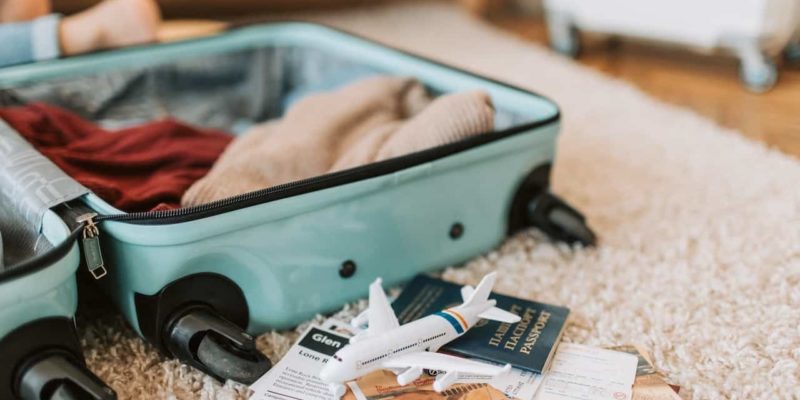
As Schengen Visa experts, we receive tons of questions about the tourist Schengen Visa (which is the most common type of Visa requested by travellers).
That’s not surprising, since travelling to Europe is the wish of many, and getting a Schengen Visa isn’t always easy.
There is a lot of confusion surrounding the Schengen Visa application process caused by all the generic website information available on the Internet.
Not to mention that some websites even provide incorrect information about the application process.
That’s why we’ve decided to shed some light on the tourist Schengen Visa application process and write a post to answer the questions we have been asked the most.
Table of contents:
- What is a tourist Schengen Visa?
- What is the difference between a single-entry and a multiple-entry Schengen Visa?
- How can I get a tourist Schengen Visa?
- What are the requirements to get a tourist Schengen Visa?
- Can tourists get a multiple-entry Schengen Visa?
- Can I travel for business on a tourist Schengen Visa?
- Can I get a tourist Schengen Visa as a freelancer?
- Which Schengen country gives a tourist Visa easily?
- Can I apply for a tourist Schengen Visa if I’m unemployed?
- How much bank balance do I have to show for a tourist Schengen Visa?
- Is it easier to get a tourist Schengen Visa for the second time?
- Can I extend a tourist Schengen Visa?
1. What Is a Tourist Schengen Visa?

To explain the tourist Schengen Visa, we are first going to explain the type-C Schengen Visa – which is the most requested type of Visa.
A type-C Schengen Visa is a short-stay Visa issued by a Member State of the Schengen Agreement which allows you to circulate in the Schengen Area for a maximum of 90 days within a 6-month period.
Whether you are travelling for tourism, business, study, family visit, etc. you should apply for a type-C Schengen Visa.
Generally, the application steps and Visa policy remain the same no matter your travel purpose.
However, based on the purpose of your visit, you must add additional documents to your application.
This means that a tourist Schengen Visa is a type-C Schengen Visa you can get after submitting supporting documents to prove your travel purpose.
It enables you to enter the Schengen Area for tourism and leisure and cross the internal borders of all Member States without passport checks.
2. What is the Difference Between a Single-Entry and a Multiple-Entry Schengen Visa?
A single-entry Schengen Visa allows you to enter the Schengen Area once. If you leave the area, you have to apply for a new Visa to be able to return.
This rule applies even if the validity period of your Visa isn’t over yet.
On the other hand, a multiple-entry Schengen Visa allows you to enter and leave the Schengen Area as many times as you want for a maximum of 90 days over a 180-day period.
More information about the Schengen 90/180 days rule can be found in this guide.
3. How Can I Get a Tourist Schengen Visa?
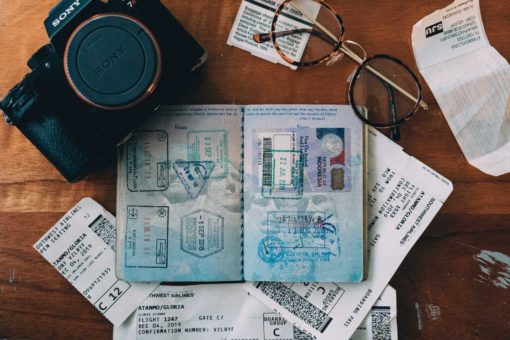
We have previously written a number of articles on how to get a Schengen Visa depending on your country of residence.
For example, if you are from India, you may want to check out this post: How to apply for a Schengen Visa from India .
No matter the country you are currently residing in, you must first find out where you need to apply and when to submit your application.
Then, you must book your Schengen Visa appointment . It is important to book your appointment well in advance because a high volume of requests may leave Embassies and Consulates with few appointment slots available.
Once you have booked your appointment, you have to collect the supporting documents and submit your application on the day of your appointment.
Generally, you can expect to wait around 15 working days to get an answer on your application.
4. What Are the Requirements to Get a Tourist Schengen Visa?
As we mentioned before (see question no. 1 – What is a tourist Schengen Visa? ), the supporting documents will stay the same for each application.
However, different travel purposes require you to add additional documents.
For instance, all applicants must submit documents such as Schengen Visa application form , two recently taken photos , a valid travel passport, flight reservations , Schengen Visa insurance , proof of accommodation, and proof of financial means.
But, if you are applying for a Visa for tourism purposes, you must also submit documents such as a day-to-day travel itinerary and hotel reservations .
You can check the full list of tourist Schengen Visa requirements here .
5. Can Tourists Get a Multiple-Entry Schengen Visa?

Yes, tourists can definitely get a multiple-entry Schengen Visa.
According to Art. 24(2) of the Schengen Visa Code , multiple-entry Visas can be issued to applicants who are able to prove the need or justify their intention to travel to the Schengen Area multiple times.
The Schengen Visa Code also states that multiple-entry Visas are issued to applicants who are able to show proof of their financial means and genuine intention to leave the Schengen Area before the expiration of their Visa.
If you are able to fulfil these conditions, then you can apply for a multiple-entry tourist Schengen Visa.
6. Can I Travel for Business on a Tourist Schengen Visa?
If you want to travel to the Schengen Area for business purposes, then you must apply for a Business Schengen Visa .
When travelling with a type-C Schengen Visa, you are allowed to undertake certain business activities, such as attending conferences and seminars or visiting offices.
However, you are not allowed to seek employment or carry out any activities that would be considered “work”.
Now, you might ask yourself, “ Can I attend a conference or visit a company’s office on a tourist Schengen Visa? ”.
The short answer is yes, you can.
If you want to travel to the Schengen Area as a tourist (and submit supporting documents to prove your travel purpose), you’re free to participate in conferences and seminars or visit a company’s office during your stay in the Schengen Area.
However, you must remember that it is important to stick to your travel itinerary. Again, if you plan on travelling to Europe for business purposes only, you should apply for a business Schengen Visa.
7. Can I Get a Tourist Schengen Visa as a Freelancer?
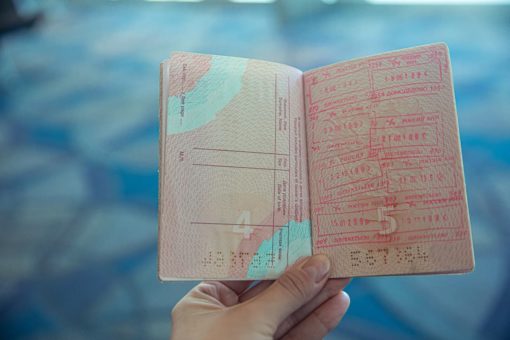
Yes, you can get a tourist Schengen Visa as a freelancer.
Your professional and employment status do not really matter when applying for a Schengen Visa – as long as you can prove your intent to return home .
You must also ensure that you meet certain requirements, such as the ability to cover your expenses during your trip to the Schengen Area.
If you work as a freelancer and don’t have all the required documents (e.g., documents related to employment or Income Tax Returns ), our recommendation for you is to be as truthful as possible in your application.
Don’t try to twist some facts to your advantage as the Embassy officers are trained to spot any inconsistencies and this may cost you the approval of your Schengen Visa.
Instead, try to convince the Embassy officers that you are working as a freelancer and are not going to seek employment or stay illegally in the Schengen Area.
Be sure to attach to your application all the documents that can show proof of your current work as a freelancer.
8. Which Schengen Country Gives a Tourist Visa Easily?
We have previously written a post on the easiest Schengen Countries to apply for a Visa .
Generally, Estonia, Lithuania, Latvia, and Finland are the easiest countries to get a Schengen Visa from, with officials granting more than 95% of applications.
These countries also receive fewer applications than popular countries such as France, Germany, Spain, and Italy.
This means that they have more appointment slots available and shorter Visa processing times.
9. Can I Apply for a Tourist Schengen Visa if I’m Unemployed?

Yes, you can.
As we mentioned before, you’re free to apply for a Schengen Visa regardless of your employment status.
However, if you currently don’t have a source of income, there are a few challenges you need to tackle.
First and foremost, you have to get a sponsor who is able to financially support your stay within the Schengen Area.
Then, you must submit supporting documents that show proof of financial resources, such as your sponsor’s bank statements and sponsorship letter .
More information on the Schengen Visa requirements for unemployed applicants can be found in this post: How to apply for a Schengen Visa if you are unemployed .
10. How Much Bank Balance Do I Have to Show for a Tourist Schengen Visa?
The funds you need for your Schengen Visa application vary according to your destination country.
For example, if you’re travelling to Belgium, you need to have at least EUR 95 per day if you are staying at a hotel or other similar accommodation.
Or, if you’re travelling to France, you must have at least EUR 65 provided that you have a hotel reservation.
You can find the minimum cash balance for each Schengen country in this guide.
11. Is it Easier to Get a Tourist Schengen Visa for the Second Time?

Every time you apply for a Schengen Visa you must submit a new set of documents and ensure that you fulfil certain requirements.
However, it might be easier for you to apply for a Schengen Visa for the second time (provided that your first application has been approved).
Why is that?
Firstly, having an old Schengen Visa attached to your passport means that the Embassy officers have additional proof of your genuine intentions to return home (because you previously travelled to Europe and then returned to your country of residence without overstaying your Visa).
Secondly, it will be easier for you to collect the required documents and submit them to the Embassy because you already know the steps involved in the process.
This will also help you feel more confident while waiting for a decision on your application.
12. Can I Extend a Tourist Schengen Visa?
You can only extend your tourist Schengen Visa in case of emergencies, such as late entry, force majeure, humanitarian reasons, or serious personal reasons.
As stated by the European External Action Service (EEAS) , it is illegal to stay in the Schengen Area beyond 90 days (unless you hold a residence permit or long-stay Visa).
Even if you feel that a complete tour of Europe can’t be done in 90 days, you cannot extend your Schengen Visa with the intent to spend more time in Europe as a tourist.
More information about the Schengen Visa extension can be found here .
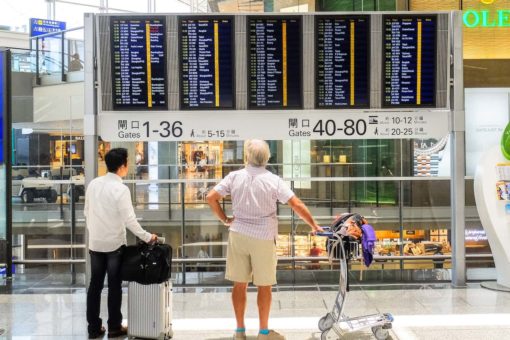
Hopefully, this post clears up many of the questions you have about the tourist Schengen Visa requirements and application process.
If you have any further questions or concerns, please do not hesitate to contact us .
Our team of Schengen Visa experts is dedicated to helping you navigate the application process with ease and ensure that you have all the information you need to meet the Embassy requirements.
We are also encouraging you to get a free, no-obligation consultation and find out the next step you need to take for a successful application.
There’s no hard sell – our free consultation is a no-stress and no-commitment session that can be completed directly from your mobile phone. You will get expert advice from our team delivered directly to your inbox.
We look forward to hearing from you and helping you plan your European adventure.
Confused Where To Start?
If you are confused, worried or stuck, the best next step to take is to Get a Free Consultation .
The session takes 5 to 10 minutes, starts immediately and you will get our advice delivered to your inbox by a Visa Expert within 1-2 hours. This is not a video or phone call, it is just like a live chat, where we can understand your situation better and an expert shares what you should do next.
There is no commitment to use our services at all, we just provide you advice based on our assessment of your situation and give you the next steps you need to follow to get your Schengen visa.
Click the Free Consultation button below to get the information you have been searching for
Visas Assoc.
Schengen visa.
- Free Consultation
- Personal Plan
Customer Care
- Privacy Policy
- Terms and Conditions
List of 20 Most Common-Asked Schengen Visa Interview Questions and Answers

A Schengen Visa allows you to stay or travel to any of the Schengen member countries. Are you applying for Schengen Visa from Dubai ? You will be required to appear for a Schengen Visa Interview Questions and Answers!
What is a Schengen Visa Interview?
A Schengen Visa interview is more than just presenting supporting documents for a visa application to a visa official from a specific country. In fact, a visa interview is designed to allow for more in-depth communication between the applicant and a diplomatic office representative. As the interview is an important factor that decides whether you will get the visa or not, you need to be aware of the dos and don’ts of a visa interview process . Along with this, you should know about the commonly asked questions and how to answer them.
The following are the general questions you should expect to be asked during a Schengen Visa interview Appointment:
Interview Questions for Schengen Visa with Answers
1. do you have a spouse if so, what does your partner do how many years have you been married.
If married, promptly answer with the right wedding date and other details. Any incorrect, delayed, or insecure answer on years of marriage could be interpreted as an attempt to conceal the truth. In case you are unmarried, tell your status as it is.
2. Are you traveling with another person?
Give the right answer with a yes or no. Also, make it a point to clarify your relationship with the person accompanying you on the trip.
3. Is it possible to reschedule a shorter trip? Why Do You Require a Three-Month Visa?
Do not be intimidated. Honesty is what the interviewer is looking for. Mention your desire to visit various tourist destinations within the Schengen Area , and that you will be unable to do so in a short period of time. You can highlight the places that you are interested in. Or carry the tickets and package itinerary to validate your plan. However, if necessary, you can answer with an agreeable response that you can reschedule and shorten the trip.
4. How are you making money for this trip? Can You Provide a Bank Statement?
Often people are shaken by the former question. Be calm. Clearly specify your job and the sources of earnings. In case, your parents, spouse, or any other beneficiary is sponsoring your trip, mention their name and relationship. The absolute answer to the latter question is YES. Without any pause, readily offer your bank statement to the interviewer.
5. Do You Have Any Scholarships?
This is another Visa interview question that should be answered directly with a yes or no. If you have a student scholarship, include the name of the institution that is awarding it, as well as the amount of financial assistance it provides and the duration of the scholarship.
6. Do you have adequate health insurance for this trip?
It is a must to safeguard your trip with valid health insurance that works overseas. Provide proof of covered health insurance for the duration of your stay in the Schengen Area with details of the name of the insurer and policy.
7. Do You Have A Boyfriend/Girlfriend?
Answer honestly, with a yes or no.
8. Do you have a job-leave authorization letter from your boss?
You will have to justify your saying by submitting the employer’s letter (signed and stamped) to the official. Because, in case you do not have such a document, it is pointless trying to persuade the interviewer that you have your employer’s permission to leave the job during the travel period.
9. Do you have any kids? If so, what age are they and what do they do?
At times, even these very common interview questions of Schengen Visa can set you back if you are not prepared. It may happen that you fail to remember your child’s job title, exact birth date, or the exact name of the company, university, or school. That is why we recommend that you prepare and memorize such information ahead of time in order to avoid giving a hesitant answer during the visa interview.
10. Do you have any family or friends who live in the Schengen Zone?
Make a list of all family members and friends who live in the Schengen Area well in advance of the interview. Tell the interviewer about your relationship with them. If your plan revolves around meeting them, mention that too. If you forget to mention anyone during the interview, the embassy may interpret this as an attempt to avoid answering the question.
11. Do You Know Anyone Involved in The Most Recent Terrorist Activities?
Try not to interpret the question as a warning. Stay unaffected and cordial. Answer the question truthfully and unequivocally. Inform the official that you have no relatives involved in these activities and express your sorrow over such acts.
12. Do you have any relatives or friends who are studying at this university?
Declare the names and relationships of relatives or friends who are currently studying at the university in the Schengen Area where you have been admitted to study if you are applying for a student visa (if any).
13. Do you know what your son/daughter’s annual earnings are?
It is important that you discuss these Visa interview questions with your children beforehand to have a clear picture of their salaries and earnings. When asked, state the annual incomes of your children accurately.
14. Do You Have to Pay Income Tax?
Any responsible, earning citizen has to pay the tax. So, there is no other answer other than Yes. You could also provide evidence for that.
15. Do you intend to pursue master’s or doctoral studies after completing your bachelor’s degree?
Express your concern about your current Bachelor’s studies and what you are looking forward to, In case you are in dilemma about your future prospects, mention that there is a possibility that you will consider this opportunity in the long run.
16. Is your son/daughter the father/mother of any children?
The answer should be straightforward: yes or no. You could also include the number and gender of his/her children.
17. Have you applied to any other universities, and if so, which ones? Have you been admitted to any other universities?
Mention the names of the universities where you applied for admission (if you applied to more than one), as well as whether you were granted permission to study at any of them, regardless of which one you chose.
18. Have you booked or purchased your plane ticket?
Simply provide the answer by presenting evidence of a booked or purchased flight ticket.
19. Have You Ever Traveled Elsewhere?
Please respond with a yes or no. Elaborate on the answer by naming the places and countries that you have been.
20. What factors influenced your decision to attend this university or college?
Indicate your interest in the specific study field offered by the selected university. Conduct some research on the university and discuss the institution’s distinguishing potentials in comparison to other similar institutions.
The following are the typical Visa interview questions that Schengen Visit Visa officials ask their visa applicants. Keep in mind our explanations and recommendations for each of the following questions so that you can easily plan an answer that allows you to GIVE YOUR BEST in a visa interview. Remember that an untruthful answer can be one of the reasons for Schengen visa rejection . So, always answer truthfully and confidently.
Leave a Reply Cancel reply
Your email address will not be published. Required fields are marked *
Save my name, email, and website in this browser for the next time I comment.

- ETIAS Application
- ETIAS Eligibility
- Countries Requiring ETIAS
Common Schengen Visa Interview Questions

While citizens of European Union countries, as well as those from countries that have a visa-free agreement with the EU, do not, as yet, require a Schengen Visa to enter or travel through a Schengen Area member state , many intending visitors will. The visa-exemption countries include the United States, Australia, South Africa, New Zealand, Canada and several others. British citizens are also visa-exempt for the present, though this situation may change in the future as the European Union rolls out the European Travel Information and Authorisation System (ETIAS) in 2023 and 2024.
Citizens of all other countries that do not enjoy visa-exempt status must possess a Schengen Visa for the country (or countries) being visited and this is a two-part process. Firstly, the intending traveller must submit a detailed online application form, and secondly, the applicant must arrange and attend a personal interview with the relevant embassy, consulate or designated visa processing centre.
The interview is an integral part of the visa application process as it is here that the consular officials have a chance to personally meet and assess the applicant and render a judgement as to whether the visa should be granted or refused. The purpose of the interview is to question the applicant regarding the reason(s) for the visa and determine if the details supplied on the application form are truthful and match the answers to the interview questions.
Objective Assessment
The prime objective of the interview is to determine whether or not the applicant is visiting the country for valid reasons, thus reducing the risk of permitting undesirable elements to enter the Schengen Area, which could pose a security risk.
The questions asked at a Schengen Visa interview can cover a wide range of topics. They can range from the applicant’s travel plans to recent travel history and some may even be of a personal nature. All questions are designed to allow the interviewer to get a better understanding of the applicant and then make an objective assessment of the person’s merit, honesty and trustworthiness.
Most Frequently Asked Questions
Questions will vary according to the purpose of the visit, how long the stay is for, whether travelling solo or as part of a larger group and many other variables.
While many of the questions may revolve around the information supplied on the visa application and the applicant’s travel itinerary, these are far from the only topics that may be covered. There is no set list of questions that may be asked, but some of the most frequently asked are with regard to:
- Marital Status: Applicants may be asked if they are married or not and, if so, to provide the exact date of the wedding. A wrong answer may raise some suspicion in the interviewer’s mind as to the applicant’s veracity.
- Travel Companions: Solo travellers just need to state this fact while those travelling with a spouse, relative, friend, or children should be able to provide details of those people who are accompanying the applicant.
- Duration of Visa: Applicants should be prepared to offer a reasonable explanation for the length of the visa being applied for. For the interviewer, a shorter visa may be sufficient for the itinerary outlined on the application form.
- Funding: Most types of Schengen Visa require the applicant to demonstrate adequate funding for expenses and accommodation but this may also be requested at the interview. Copies of the last six month’s bank statements should be brought to the interview in case proof of funding is requested.
- Study: For applicants seeking a Schengen Visa for study purposes, it may be necessary to furnish documentation proving enrolment in a recognised educational establishment as well as details as to how the period of study will be funded.
- Student Friends and Relatives: Applicants seeking a visa for study purposes may be asked for details of friends or relations already enrolled in an educational course in the country. If requested, the applicant should be able to provide names and details of the duration and location of these studies.
- Health Insurance: Virtually certain applicants will be asked if they have sufficient travel health insurance to cover illness or accident while in the country. Such documentation should accompany the application form and be brought to the interview.
- Personal Relationship: Of a more personal nature, the applicant may be asked about current relationships, such as a boyfriend or girlfriend. This is particularly pertinent if the other person is currently resident in the Schengen Area or a citizen of the country being visited.
- Employment: Applicants are frequently asked about their current employment situation. Questions regarding employment should be answered truthfully and fully as the details provided can be easily checked, and the visa should be refused if inconsistencies or untruths are uncovered.
- Leave Approval: Visa applicants in full-time, part-time or temporary employment should bring a signed, stamped and dated letter from the employer confirming the applicant’s status and permission to take leave. Such letters are not always requested but it is vital to have this document at the interview, as failure to do so may adversely affect the outcome.
- Children: Applicants with children may be asked general questions about the children’s ages and schools attended, and this is even more likely if the children are accompanying the applicant on the trip. Applicants with older children may be asked for details about the children’s employment and approximate salary. Another question that may be asked is whether the applicant’s children have children of their own.
- Friends or Relatives: If asked, it is important to inform the official of any friends or relatives who are citizens or official residents of the country being visited. In many cases, the officials will already be aware of close friends or relatives and omitting to mention one or more of these may be construed as suspicious.
- Tax Details: Applicants may be asked whether or not they pay taxes, as this is indicative of regular income. The purpose of this question is to determine if the applicant has a job and is, therefore, more likely to return home when the visa expires.
- Flight Tickets: Proof of a return flight (or other means of travel) is a requisite part of the application process. The applicant will be asked to provide documentation showing that travel has been booked for the dates stated on the application form.
- Previous Schengen Visas: A very common question asked is whether the applicant has visited the Schengen Area previously. If so, details will be required as to where, when, for how long, and the type of Schengen Visa used. If this is a first-time application, this should be stated in answer to the question.
- Previous Visas : A common question at the interview is with regard to previous travel and particularly where a visa was required. This is important as an applicant with a history of overstaying a visa, being refused entry to a country or having been deported will have considerable difficulty in securing the required Schengen Visa.
- Length of Stay: An interviewer may question the reasons for the length of the visa, and a good explanation will be required. For this reason, it is strongly advisable to compile a day-by-day itinerary plan listing the places being visited, why and for how long. Many visa administrators expect some form of travel itinerary to be supplied at the interview, which will document the visitor’s plans for the visit.
- Estimated Costs: The interviewer may ask questions regarding how much the entire trip is expected to cost and be satisfied that the applicant has, or has ready access to, sufficient funds for all expenses that may arise while in the Schengen Area.
- Main Purpose: The most commonly asked question is why a traveller wishes to visit the country in question. This will be for a specific purpose, which will determine the type of Schengen Visa that should be applied for. The main reasons could be study, visiting friends or relatives, medical treatment and holidays. Whatever the main purpose of the visit, applicants should have a basic explanation for applying for a visa and supply any documentation which supports the reason given.
- Seeking Employment: All Schengen Visas prohibit the holder from seeking employment (even unpaid work) while in the Schengen Area. However, this is a rule that is often broken by some, and the interviewer may query the applicant’s employment status to seek reassurance that this will not be the case should the visa be granted.
- Accommodation: Details of accommodation booked (even if staying with friends or relatives) are a required part of the application procedure. The interviewer may have questions concerning the applicant’s accommodation plans and ask for documentary proof of confirmed bookings or a letter confirming that accommodation is being provided.
Main Purpose
The interviewer’s aim is not to catch the interviewee out but to get an overall impression as to whether he or she can be trusted to obey the Schengen Visa rules and pose no criminal or terrorist risk. It is understood that the applicant may be nervous and make simple errors, but any issues can be avoided by preparing for the interview and ensuring that any supporting documentation is readily available.
Tourism and income from visitors are important for every country, and the main purpose of the interview is simply to meet the applicant and get an overall sense of the person’s veracity. Almost 100% of visa applications are granted with little difficulty unless a major issue should arise. The vast majority of applicants who attend a Schengen Visa interview have already been thoroughly checked by the authorities and will be granted the required visa.
Related Articles

April 23, 2024
Simplifying the Europe Visa application process through information, articles and comprehensive guides.
© 2024 Europe-Visa.com. All rights reserved. Privacy Policy | Terms & Conditions
Privacy Overview
Update April 12, 2024
Information for u.s. citizens in the middle east.
- Travel Advisories |
- Contact Us |
- MyTravelGov |
Find U.S. Embassies & Consulates
Travel.state.gov, congressional liaison, special issuance agency, u.s. passports, international travel, intercountry adoption, international parental child abduction, records and authentications, popular links, travel advisories, mytravelgov, stay connected, legal resources, legal information, info for u.s. law enforcement, replace or certify documents, before you go.
Learn About Your Destination
While Abroad
Emergencies
Share this page:
Crisis and Disaster Abroad: Be Ready
What the Department of State Can and Can't Do in a Crisis
Information for U.S. Citizens about a U.S. Government-Assisted Evacuation
Traveler's Checklist
Safety and Security Messaging
Best Practices for Traveler Safety
Staying Connected
Smart Traveler Enrollment Program (STEP)
Traveler Information
LGBTQI+ Travelers
Adventure Travel
High-Risk Area Travelers
Travelers with Dual Nationality
Journalist Travelers
Faith-Based Travelers
Pilgrimage Travelers (Hajj and Umrah)
U.S. Students Abroad
Cruise Ship Passengers
Women Travelers
Travelers with Disabilities
Older Travelers
U.S. Volunteers Abroad
Travelers with Pets
Travelers With Firearms
Travel Agents
Travel Safety - Race and Ethnicity
U.S. Travelers in Europe's Schengen Area
Your Health Abroad
Insurance Coverage Overseas
Driving and Road Safety Abroad
Customs and Import Restrictions
Information for U.S. Citizens in Russia – Travel Options Out of Russia
Lodging Safety
Paris 2024 Olympics and Paralympics
In Europe's Schengen area , your passport must be valid for at least six months at the time of your entry. At present, the Schengen area includes most European Union (EU) countries, except for Cyprus and Ireland.
If you are transiting through Canada or the United Kingdom (UK) enroute to the Schengen area : your passport must be valid for at least six months, even though Canada and the UK do not themselves have the six-month rule. If your passport will expire within six months, airlines may not let you board your onward flight to Europe.
Traveling in Europe
If you plan to travel in Europe, you need to know about the Schengen Borders Agreement, which allows you to move freely within a number of countries without border checks. Tourists, exchange students, and people visiting for business from certain countries, like the United States, can travel in the Schengen area for up to 90 days. The Schengen area includes most EU countries, except for Cyprus and Ireland. It also includes four non-EU countries: Iceland, Norway, Switzerland, and Liechtenstein.
Before you travel to the Schengen area, we recommend you do the following:
- Check the expiration date on your passport book carefully before traveling to Europe. Ensure your passport book is valid for at least six months when you enter the Schengen area. This is especially important for minors under age 16 as their passports are only valid for five years. In contrast, U.S. citizen adults aged 16 and older receive passports that are valid for 10 years.
- Always carry your passport book with you when traveling to another country in the Schengen area. Even if there is no border check at that time, officials may reinstate border controls without notice.
- Be prepared to explain your purpose of travel.
- Be prepared to provide proof of sufficient financial resources for the visit.
- Comply with other entry requirements for each country you will visit or transit.
On our Country Information pages , you can find passport validity requirements and other important information for your destination country. If your passport does not meet the Schengen requirements, you may be:
- Refused boarding by the airline at your point of origin or while transferring planes.
- Denied entry when you arrive in the Schengen area, regardless of how long you will stay.
An immigration official will determine if you qualify for visa-free entry to the Schengen area when you first cross any external Schengen border. You will have to present your passport at that time. The officer may deny your entry if you do not qualify.
You should also check passport validity requirements if traveling onward from the Schengen area to a country outside the Schengen area. You can find this information in our Country Information pages.
HOW LONG CAN I REMAIN?
- With a valid U.S. passport book, you can stay up to 90 days in the Schengen area for tourism or business during any 180-day period. You must wait an additional 90 days before applying to re-enter the Schengen area.
- If you plan to stay in the Schengen area longer than three months, contact the embassy of the country where you plan to spend the majority of your time and apply for a visa.
Countries in the Schengen area may reinstate temporary internal or external border control without notice. U.S. citizens should carry their U.S. passport book at all times when entering or leaving the Schengen area. They should also bring it when traveling between Schengen countries.
How can the U.S. government help me if border officials do not let me enter?
- We can give you the contact information of foreign embassies of the countries you wish to visit.
- We can provide information about hiring an English-speaking foreign attorney overseas if you choose to do so.
- Note: We cannot influence a foreign government’s decision about allowing you to enter. We cannot intervene in another country’s criminal or administrative procedures.
What countries are members of the Schengen Borders Agreement?
Click on the country name for more information.
Bulgaria (entering in March 2024)
Czech Republic
Liechtenstein
Netherlands
Romania (entering in March 2024)
Switzerland
Enroll in STEP

Subscribe to get up-to-date safety and security information and help us reach you in an emergency abroad.
Recommended Web Browsers: Microsoft Edge or Google Chrome.
Learn about your destination
Make two copies of all of your travel documents in case of emergency, and leave one with a trusted friend or relative.
External Link
You are about to leave travel.state.gov for an external website that is not maintained by the U.S. Department of State.
Links to external websites are provided as a convenience and should not be construed as an endorsement by the U.S. Department of State of the views or products contained therein. If you wish to remain on travel.state.gov, click the "cancel" message.
You are about to visit:
French Schengen Visa Interview
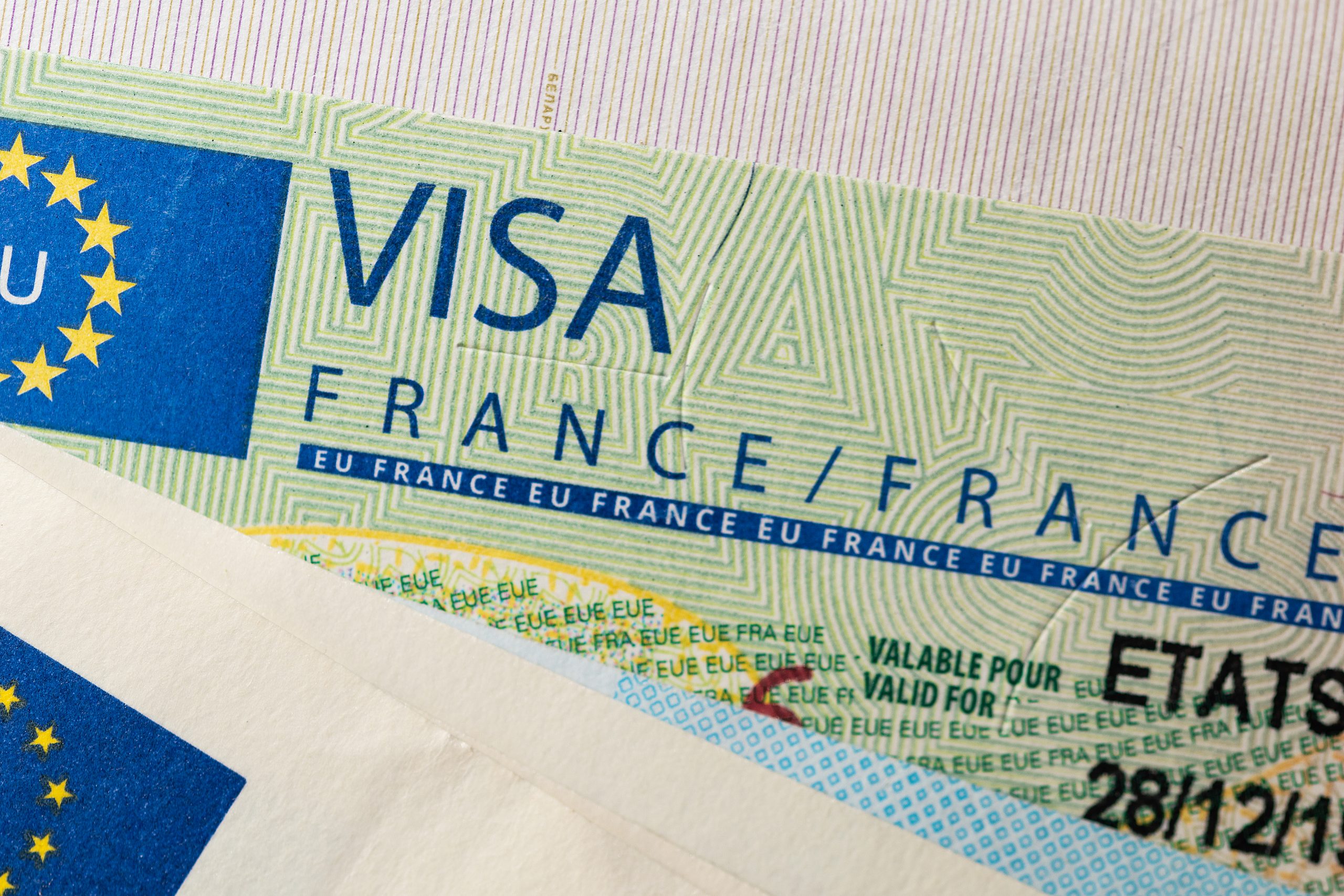
Many people who apply for a Schengen visa to France are interviewed as part of the application process. Read on for more information about the kinds of questions you will be asked, and for other basic information about your French Schengen visa appointment.
Basic info for French Schengen visa interview
- If you are applying for a Schengen visa to France , you will likely need to attend an in-person interview.
- Keep in mind that most of the following interview questions are applicable to all Schengen visa forms not just for applications to France.
- Are you married or do you have a boyfriend/girlfriend at home?
- Do you have children?
- Where do your parents live and what do they/did they do for a living?
- Where are you employed in your home country and what is your monthly/annual compensation?
- Are you currently a student or have you previously graduated from university?
- Have you acquired travel medical insurance?
- Are you/have you previously affiliated with a terrorist organization?
- What countries can you travel to on your Schengen visa? Do you know where you can go with it?
- Your responses to the above questions should be honest and straightforward. You will be more likely to receive a visa if your interviewer thinks you have a reason to return to your home country, so emphasize all your links to your country, such as your family, friends, job, residences you own, and other attachments.
- In addition to the above general questions, you will almost certainly be asked the country-specific questions below.
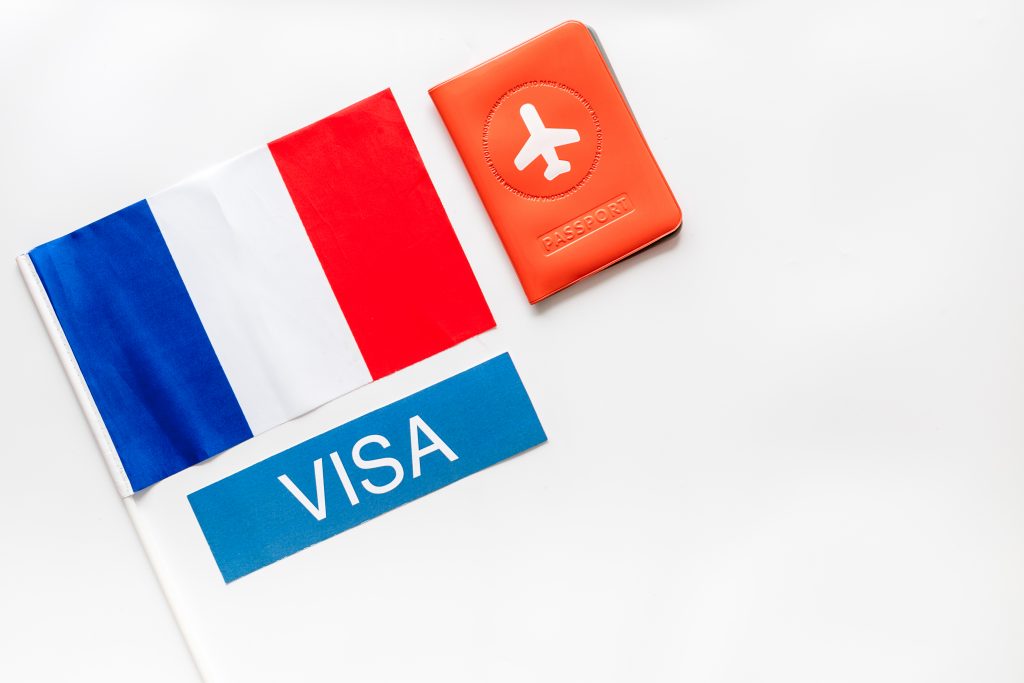
French Schengen visa interview questions
What is the purpose of your trip to france.
- Explain your reason for travelling to France. If it is for medical or business reasons, go into detail. For example, if you are going for tourist purposes, talk about everything you want to see in the country. If you are going to Paris, list the sites you want to see, such as the Eiffel Tower, the Louvre, and the Cathedral of Notre Dame.
How long will you be staying in France?
- Tell the interviewer the time frame for your proposed trip. Be certain to indicate your awareness of the fact that you cannot exceed 90 days in the country.
How will you fund your trip to France?
- Some Schengen countries are more expensive than others. The cost of living and travelling in France is more expensive than in, say, Portugal. The interviewer knows how much things cost in the country and will be checking to make sure that you can afford your trip based on your salary and the amount of money you have set aside for the experience.
- Be honest about the source and amount of your funds. If you are caught lying or exaggerating about your job/salary you will likely be found out, and could be banned from future visits to the Schengen area .
- Demonstrate your awareness of what things cost in France. Show that you have done the research and that your trip is budgeted to reflect your intended expenses. For example, if you are planning on travelling from Paris to the south of France, try to find out the general price of a ticket from Paris to Marseilles.
- If you can cover the cost of your housing by staying with family and friends, you won’t have to possess as much money. If plan on paying for your lodging, (i.e. staying in a hotel or an Airbnb, try to have a general awareness of what the nightly costs are prior to your interview, so that you can prove you can afford them on your salary.
Are you going anywhere else in the Schengen area outside of France?
- Unless you receive a Limited Territorial Visa (LTV) for France, you should be allowed to travel within and across the 26 countries in the Schengen area.
- If you are looking to visit other countries in addition to France, be honest about your plans.
- Make sure you have an idea of where you will stay outside of France (i.e. in a hotel, with friends, etc.).
- Again, try to demonstrate your awareness of costs in other countries. For example, if you are planning on taking the train from Paris to Rome, have a general idea of how much a roundtrip ticket will cost.
Have you ever visited France before?
- If you have visited France before now, talk about your previous experience in the country.
- You are more likely to receive a Schengen visa to France if you previously received a Schengen visa to the country and fulfilled all of its terms and conditions (i.e. left the country before it expired).
Do you know anyone in France?
- Be honest about your contacts in France. Do you have friends or family living in the country? Talk about who they are and where they live.
Do you know how long you can stay in France for?
- The interviewer wants to be sure you understand how long you can remain in the country before you are legally required to leave. Make sure you understand that your Schengen visa to France is valid for 90 days within a 180-day period-meaning you cannot stay more than 90 days on this particular trip.
Why do you need to spend so much time in France? Why don’t you apply for a visa for a shorter period of time?
- If you are applying for a Schengen tourist visa for France, you should have a general idea of what you want to do and the sites you need to see so that you can explain why you need the amount of time that you do.
How do you guarantee that you will leave France when your visa is up?
- By asking this question, your interviewer is trying to credibly determine that you will not try to overstay your visa or seek asylum in the country. In order to put their mind at ease, talk about your trip timeline and why you need to be back when you do. For example, if you are a student, talk about how your trip to France corresponds with your school break, and how you have to return before classes restart. The fuller your life is in your home country/country of residence, the more likely you will receive a French Schengen visa!
Keep reading for more background information about your Schengen visa interview appointment
Who gets interviewed .
- If you are applying for a Schengen visa for France and you are over the age of 12, you will likely have to go to your appointment in person and be interviewed.
- This means that even if you have recently received a previous Schengen visa for France and your fingerprints are in the system, you may still be asked to come in for an interview.
- However, if your fingerprints are already in the system and you have previously received a Schengen visa you will likely not have to go through the interview process again or appear in person to drop off your application.
Where is it?
- This interview will be conducted in person at the French consulate, French embassy, or visa application center through which you are applying.
When is it?
- If you are called to interview, it will almost certainly take place after you have filled out an online application.
How do I schedule a French Schengen interview?
- You can schedule the interview through the online French Schengen visa application portal.
- After you have submitted the French Schengen visa application online, you can follow the directions for how to schedule an online appointment.
What should I bring?
- A printed out copy of your online application, completed and signed
- A copy of your passport
- 2 passport photos
- Proof of medical insurance
- Other documents ( click here for a full list of required documents for a Schengen visa ).
What will happen during my appointment?
- Submit a paper copy of your application.
- Have your biometric information (fingerprints and photo) taken.
- Pay your Schengen visa fee .
How long does the interview last?
- The time you will spend being interviewed varies.
- Some people may only be interviewed for a couple of minutes, while others could take longer (around 20 minutes).
Who will interview me?
- You will be interviewed by an authorized staff member or employee of the French embassy , consulate, or visa application center.
I don’t speak French. Will my interview be conducted in French?
- Your interviewer will not speak to you in French if you do not speak the language.
- Your interview will either be conducted in the language of the country the French Embassy/consulate is located in, or English.
- For example, if you are applying from the French embassy in Cairo, your interview will likely be conducted in Arabic, unless you prefer to converse in English.
How should I dress?
- Wear something that you feel comfortable and confident in. While there is no dress code for French Schengen visa interviews, try to avoid looking too casual or overly formal.
The Gulf Countries’ Visa Is Coming. Will It Be Enough to Land Taylor Swift?
Josh Corder , Skift
May 7th, 2024 at 10:33 AM EDT
A GCC unified visa could prompt many things, including some fleeting visits by superstars.
Josh Corder
A Taylor Swift tour is on Saudi Arabia’s radar. That’s not saying much of course – Swift is on every destination’s radar . But Saudi says such a concert could be in the country’s future if the wider Arabia does more to promote itself as a unified destination.
“If we [the GCC] want the Taylor Swifts of the world, we can do it if we collaborate and get an Arabian tour [finalized],” said Saudi Tourism Authority (STA) CEO Fahd Hamidaddin at Arabian Travel Market (ATM), Dubai’s biggest travel trade show.
Hamidaddin was on a panel discussing the rollout of the region’s “GCC zone” visa – a single travel permit akin to the Schengen zone that will allow travelers across Saudi, the UAE, Bahrain, Kuwait, Qatar and Oman.
Swift’s Eras Tour is ongoing until the winter with 150+ shows on five continents. She does not have any stops in the GCC, despite Saudi and the UAE investing heavily in their events infrastructure.

Taylor Swift Isn’t Playing Brisbane, So Why is Its Airport Braced for a ‘Swiftie Surge’?
The phenomenal impact of the ‘Swift Lift’ is being seen by travel and tourism companies around the world – even when Taylor isn’t visiting the city in question.
Qatar too has a string of dormant FIFA stadiums perfect for massive concerts.
Saudi is no stranger to using superstars to promote its tourism agenda. Both Cristiano Ronaldo and Lionel Messi are on the payroll, living and working in the kingdom. Both often promote key tourism destinations in the country and appear in ad campaigns.
In the events tourism segment, Saudi is a big player in WWE and other fighting sports and Abu Dhabi plays host to numerous UFC games.
The GCC Zone
This visa was first mentioned in May 2023 at a conference in Dubai, where the countries’ ministers shared their hopes to unite the GCC so tourists would consider cross-country travel like they do in Europe.
It was then approved in October last year. At ATM, government officials said the “platform” should be completed before the end of 2024.
How could a unified visa help land big acts? Countries’ tourism orgs are aligning on packages to sell to visitors.
On stage, Abdullah bin Touq Al Marri, Minister for Economy UAE said that the visa will include “grand packages” a month in length.
“The unified tourist visa will allow travelers to visit all six countries,” he said. Through the GCC grand tours we are aiming to finish, tourists will spend more than 30 days in the region.”
Another panelist added that the new visa will primarily bump up length of stay in the Gulf. Khalid Jasim Al Midfa, Chairman of Sharjah Commerce and Tourism Development Authority said: “One of the main aims is to extend the length of stay. In leisure, people can travel up to four weeks. We want them to combine their holidays across the GCC.”
The Daily Newsletter
Our daily coverage of the global travel industry. Written by editors and analysts from across Skift’s brands.
Have a confidential tip for Skift? Get in touch
Tags: gcc visa , middle east report , taylor swift , Tourism news
Photo credit: Taylor Swift performing on-stage during the Eras Tour concert at SoFi Stadium in Inglewood, August, 9, 2023. Paolo Villanueva / Wikimedia

Scant slots, lengthy waits: Where have all the Schengen visas gone?

For Aditya Mishra, preparations for his Barcelona trip to join his wife in June began months ago. The 37-year-old corporate employee, who just returned from his work trip to Budapest in Hungary, however, found himself embroiled in a frustrating saga of visa acquisition.
Every day, Mishra would diligently log into BLS International's portal, the official website for Spain's Schengen visas. Despite his consistent efforts, securing an appointment for a summer travel visa, remained an uphill battle.
Weeks passed, then months, but there was no appointment in sight. He eventually opted for an unconventional solution after exhausting all his avenues, including trying to use other visa handlers who could secure slots through other means.
He had to reluctantly shell out a hefty fee of ₹ 30,000 for a "visa-at-your-doorstep" appointment, which costs three times more than the actual visa processing fee and commissions.
Mishra's story isn't one from the visa landscape of the pandemic but for 2024 upcoming summer travel, where bureaucratic hurdles still exist despite a change in regime and lack of interest in embassies to reduce the wait time for tourists.
Navigating through the complexities of international borders and regulations has never been easy. But visas to Europe have remained as elusive to obtain as last year and the year before. On average, the next available appointment date for a Schengen visa is 30-45 days, a top online travel agency's senior executive confirmed to Mint .
The Schengen area refers to a group of European countries that have abolished passport and other types of border controls at their mutual borders to allow free movement of people.
The area currently comprises 26 European countries, including Austria, Belgium, Czech Republic, Denmark, Estonia, Finland, France, Germany, Greece, Hungary, Spain, Sweden, Scandinavia and Switzerland.
The change in the visa regime for Schengen was earlier termed a game changer for frequent travellers. The criteria are that if you had two Schengen visas issued to you in the last three years, you could be eligible to apply for a multiple-entry visa. But how many really qualify? A good part of the last three years had seen two waves of the pandemic and throttling of flights.
Germany’s envoy Georg Enzweiler, who is the deputy head of mission here, told Mint last week that the country is doing its best to make travel to their country as easy as possible.
"Yes, there is the Schengen visa regime and we have to handle it but the number of issued visas have gone up and visa wait times have gone down to just a few days in the last one year," Enzweiler had said at the sidelines of a tourism event held by the German National Tourist Organisation last week.
Enzweiler said, visa numbers from India to Germany had increased for both Schengen and the 'National Visa' it issued, going up to about 1.7 lakh in 2023-24, with a 41% increase compared to the previous year.
But that may be very far from reality. A visa wait time document accessed by Mint from a travel operator paints a completely different picture. Italy has almost completely stopped offering any slots on the VFS platform for its short-term tourist visa category from cities like Delhi.
For Mumbai, Kolkata and Bengaluru, the wait to get an appointment is very long, anywhere between one and three months.
Iceland, Portugal, Spain, and Hungary practically have no slots available in most places either. Wait times including processing the visa can range anywhere between 15-75 days, as was the case with Mishra.

However, there are some notable exceptions like Scandinavia as well as for the Czech Republic. For these countries, there are appointments available within the next few weeks. Countries like Spain and Hungary only release appointments once a month, said the earlier cited OTA player.
If you're lucky enough to get a slot, then there is the next hurdle: processing time which can go as high as 7-20 working days.
As an alternative, many travel companies are promoting other unconventional destinations, including South Korea, South Africa, Japan, Brazil, Egypt and Turkey. In most cases, their wait time is as low as zero to three days. Unexpected gainers are also countries like Azerbaijan, Kazakhstan, Uzbekistan and Georgia which have easy visas.
Also Read: ‘Suite' surprise: Discounts rain at 5-star hotels for summer, autumn travel
Enzweiler, on the other hand, said he is on a mission to reduce wait times, with more staff being hired by his embassy to deal with the added volumes.
“I am not going to blame people for choosing alternate locations when there are countries with visa delays. But there has been a change in recent regulations which means Indians qualify more quickly for long term visas," Enzweiler said.
“It is also in the embassy's interest to issue longer term visas because even on the bureaucratic side, it means we don't have to cope with that many people filing applications again and again. We have also now employed more personnel to be able to deal with rising demand and are quite optimistic that we would be able to convince more Indians to travel to us."
While visa wait times are down it is only more recently, with holiday season beginning, that the wait times are experiencing some delays, he said. But even then the embassy is working to process applications in one-two weeks, he added. For Germany now, visa rejection rates are about 10%.
Indian travellers' late-booking attitude could be compounding the issue. Rajeev Kale, president and country head for holidays, MICE and visa at Thomas Cook (India) said, “We are traditionally a late-booking market and book very close to our holiday plans. To encourage early consideration, the company had launched its 2024 tours well in advance in October last year with early booking offers."
"However, as we head into peak season, the visa process, though an improvement over last year, is still seeing signs of constraints given the dual challenges of appointment slots and processing time," he said.
Spate of cancellations
Bharatt Kumaar Malik, senior business head for Yatra Online for the consumer travel vertical said the company was seeing a spike in the demand for travel to Schengen destinations for about a month now.
Generally, travel portals pre-book seats with the airlines and hotel rooms to be able to capture deals and demand in advance for the customer.
However, this year is going to be difficult because there will be a lot of pre-purchased inventory and fewer people will be able to travel there.
"We are unable to put any number on it yet but yes we are anticipating a decline in travel to Europe and have already seen some groups cancel their plans to Italy and more such cancellations will happen in June and July," he said. Instead, travellers have to choose locations like Bhutan, Almaty, Sri Lanka, Thailand and Vietnam.
Also Read: Beer battles election blues, gin toasts summer gains
N. Chirag Travels's MD Riaz Munshi, who is also the president of the Outbound Tour Operators Association of India, said the UK, Scandinavian countries and Switzerland are still a little easier to get an appointment for.
However, this season could be a little bit of a washout for European travel even though there is persistent demand.
"It looks like a lot of outbound travel operators may lose this season of business too. Communication should be a little better because it's not as if the travel operators there don't want the business, but the diplomatic missions need to spend more time on the visa processes too," he said.
Greece has a high refusal rate because only recently the entire consulate had a change of guard in India.
“You may get a visa, but it won't be in a hurry. Even for countries like Croatia, there's a wait time of several weeks for passports that are well stamped for those who already have been issued Schengen visas in the past, but for first-time Schengen country travellers, a visa hope may be a total write off. Despite confirmed tickets and blocked hotels, people are just being rejected."
"The value-driven traveller is probably going to move away quite quickly because they can't be losing money on confirmed flight tickets and hotels in case the visa doesn't come," said a top level executive at a large travel firm.
"Also, because there are very few slots available on the embassies' front, visa service providers are using this time to profiteer and offer these slots in a way to only those that can afford their at-your-door mobile biometrics which were conceived during the pandemic so people could fill their visa applications in isolation. Their job was never to become a type of legitimate black marketing tool," the person added.
Daniel D’souza, president and country head for holidays for Thomas Cook India's SOTC Travel added that there could be an alternate solution. With shortening of booking windows rather than challenging visa processes, e-visas can become a game changer.
Several destinations like Australia, Singapore, Malaysia, Georgia, Sri Lanka, Azerbaijan, and Morocco have pivoted to a digital model, and with much success.
"Issuance of long-term multi-entry visas will also serve to ease the load on consular teams while simultaneously creating opportunities for repeat visitations. Yes, the Schengen cascade regime is a valuable initiative, however we expect that this (upgrade to longer term visas) will start seeing positive impact only in the medium to long term." he said.
MINT SPECIALS
Wait for it….
Log in to our website to save your bookmarks. It'll just take a moment.
You are just one step away from creating your watchlist!
Oops! Looks like you have exceeded the limit to bookmark the image. Remove some to bookmark this image.
Your session has expired, please login again.
Congratulations!
You are now subscribed to our newsletters. In case you can’t find any email from our side, please check the spam folder.

Subscribe to continue
This is a subscriber only feature Subscribe Now to get daily updates on WhatsApp
Open Demat Account and Get Best Offers
Start Investing in Stocks, Mutual Funds, IPOs, and more
- Please enter valid name
- Please enter valid mobile number
- Please enter valid email
- Select Location
I'm interested in opening a Trading and Demat Account and am comfortable with the online account opening process. I'm open to receiving promotional messages through various channels, including calls, emails & SMS.
The team will get in touch with you shortly

IMAGES
VIDEO
COMMENTS
A visa interview is an important part of the visa application process, during which the consular staff determines if the applicant is truthful about their intention to visit the Schengen Area. They will ask detailed and personal questions to see if the applicant is honest and will return home after their visit. It's crucial for […]
The Schengen visa interview is a very important factor in the visa application process. A visa interview allows diplomatic officials to verify the applicant's identity, evaluate their travel plans, and assess their eligibility for a Schengen visa. The interview is a great opportunity for the interviewer (which in this case, is the diplomatic official) to […]
Travel Related Questions. Schengen visa requirements along with all the other steps, also include a detailed interview at the embassy. Once you submit a visa application to get the Schengen visa, the last step in this visa or immigration process is the interview at the embassy. An applicant can be asked various questions for the satisfaction of ...
3. Lying about the reason for your travel. 4. Unable to answer common questions about your destination. 5. Not having all required documentation. 6. Arriving late to the interview. Keeping these things in mind will help you ace your Schengen Visa interview and get one step closer to your dream vacation.
This article's common visa interview questions aren't just for Schengen visa interviews; they may be used for any form of visa interview in any country around the world. ... Take time to do some research about the specific country you are about to travel to and the Schengen Area in general. Focus talks a little bit about the freedom of movement ...
The Schengen visa interview is the most difficult part of the application process, and applicants must be well-prepared to answer the questions to the satisfaction of the Embassy interviewer. Here is a list of the 30 most common interview questions that are routinely asked during the Schengen interview. 1. Where do you reside in the country?
A Schengen visa is an entry permit for a short, temporary visit of up to 90 days in any 180-day period. A Schengen visa can be obtained in the form of a single-entry visa, allowing the holder to enter the Schengen area once, or a multiple-entry visa, which is granted for several visits to the Schengen area for as long as it is valid.. The short-stay visa calculator can be used to calculate the ...
A Schengen Visitor Visa is a short-stay entry permit issued to visit family members or friends living in any of the Schengen Area member states.It permits its holder to remain in this territory for up to 90 days, within a period of 180 days, and travel throughout the member countries without being a subject to internal border checks.
Schengen Visa FAQs | Frequently Asked Questions about Schengen Visa Requisites and Rules | Details about traveling to Schengen Zone ... All people from the following countries need a Schengen visa to travel to the Schengen area, regardless of their age. 1. AFGHANISTAN. 53. LAOS. 2. ALGERIA. 54. LEBANON. 3. ANGOLA. 55. LESOTHO. 4.
30 Most Common Schengen Visa Interview Questions & How To Answer Them. We strongly recommend you read all the tips and guidelines listed in this article, as they can help you make a good impression during the interview and get your Schengen Visa approved. 1. Are you a tourist/Why do you want to travel to the Schengen Area/Why do you want a ...
A type-C Schengen Visa is a short-stay Visa issued by a Member State of the Schengen Agreement which allows you to circulate in the Schengen Area for a maximum of 90 days within a 6-month period. Whether you are travelling for tourism, business, study, family visit, etc. you should apply for a type-C Schengen Visa.
A Schengen Visa allows you to stay or travel to any of the Schengen member countries. ... At times, even these very common interview questions of Schengen Visa can set you back if you are not prepared. It may happen that you fail to remember your child's job title, exact birth date, or the exact name of the company, university, or school. ...
The applicant will be asked to provide documentation showing that travel has been booked for the dates stated on the application form. Previous Schengen Visas: A very common question asked is whether the applicant has visited the Schengen Area previously. If so, details will be required as to where, when, for how long, and the type of Schengen ...
The purpose of a Schengen visa interview is for the relevant consular authorities to determine whether or not a Schengen visa applicant is deserving of a Schengen visa. If you are an applicant, you may be called to an interview in order to determine that you: Are law abiding and of good character. Can afford all the financial expenses related ...
After the US, UK and Australian visas, the Schengen visa is the fourth most difficult visa to get. WHY DO YOU NEED A SCHENGEN VISA? There's just one reason why you'd need a Schengen visa - to travel to Schengen countries. A non-Schengen traveller cannot visit or travel within the boun-daries of the Schengen area without the Schengen visa.
If you are a citizen or resident of a country located outside Europe, you may have to obtain a visa in order to travel to Germany. Your best bet is a Schengen visa, which will allow you to travel to Germany and throughout the 26-countries in the Schengen area. ... Germany-Specific Schengen Visa Interview Questions. The following questions are ...
Learn the most common questions (and their answers) that our Schengen Visa applicants get. This is the only video you need to watch in order to prepare for y...
sufficient funds, proof of accommodation, how long you intend to stay, round-trip airline ticket, the purpose of your entry, travel insurance, invitation letter, etc. Please ensure that the border officer gives you an entry stamp on your passport when you enter or leave the Schengen area. Without a stamp, you could be fined or detained.
One of the first steps when applying for a Schengen visa from the U.S. is to download and complete the visa application form. Although this form is the same for all Schengen countries (harmonized), many embassies or consulate offices prefer that applicants complete it through a specific online application or through a visa center.
Tourists, exchange students, and people visiting for business from certain countries, like the United States, can travel in the Schengen area for up to 90 days. The Schengen area includes most EU countries, except for Cyprus and Ireland. It also includes four non-EU countries: Iceland, Norway, Switzerland, and Liechtenstein.
Basic info for French Schengen visa interview. If you are applying for a Schengen visa to France, you will likely need to attend an in-person interview. Keep in mind that most of the following interview questions are applicable to all Schengen visa forms not just for applications to France. Are you married or do you have a boyfriend/girlfriend ...
Hamidaddin was on a panel discussing the rollout of the region's "GCC zone" visa - a single travel permit akin to the Schengen zone that will allow travelers across Saudi, the UAE, Bahrain ...
Enzweiler said, visa numbers from India to Germany had increased for both Schengen and the 'National Visa' it issued, going up to about 1.7 lakh in 2023-24, with a 41% increase compared to the ...